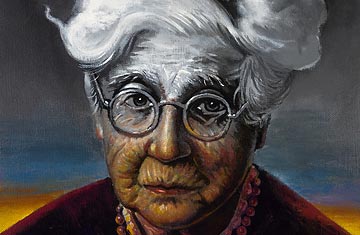
(2 of 2)
But some of the elements in the index were more surprising. The research team found, for instance, that patients who were underweight, did not drink alcohol and took longer to put on and button a shirt were also at high risk for dementia. Barnes speculates that fine motor skills, such as those required to button a shirt, may be one of the first things to suffer as neural connections in the brain succumb to dementia. As for the alcohol connection, she suggests that people who drink alcohol may simply be healthier overall and therefore less vulnerable than others to mental decline. "It's possible that someone who is still enjoying a glass of wine each day is in better health," Barnes says.
But she warns that it's too early to encourage elderly patients to start drinking in order to stave off senior moments. "Since alcohol is contraindicated with so many medications today, sicker people who are taking medications may have had to cut alcohol out," she says.
Still, the screening tool may be extremely useful in prompting high-risk people to start doing whatever they can to protect themselves from future memory loss. "This study has taken a number of earlier findings on risk factors and combined them into a fairly impressive predictor of risk," says Dr. Ralph Nixon, vice chair of the medical and scientific advisory council for the Alzheimer's Association. The new index accurately predicts dementia in 81% of cases. (The midlife tool predicts dementia accurately 78% of the time.)
So, what should high scorers do? For one, they can build a rich social network of friends and family, and engage aggressively in ways that challenge their mental as well as physical capabilities. "I truly believe that a lifestyle that incorporates greater socialization and greater use of the mind is what is most important for reducing risk of Alzheimer's," says Nixon, who is also director of the Center of Excellence on Brain Aging at New York University Langone Medical Center. And if this screen can inform more people about their risk of developing dementia — and encourage younger folks to start taking precautions early — perhaps they will be able to prevent the disorder from occurring in the first place.
